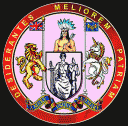In the history of cross-border smuggling, the Thousand Islands in general, and this one in particular, have a special place. Scattered through the upper St. Lawrence River, with the republic on the south shore and the dominion on the north, the islands were a smuggler’s dream — the American border is only about 10 kilometres from where I live.
But those days are in the past, no competition for a reality even better than any smuggler’s dream: Indian reserves.
The smuggling action is now to the east of us on the cross-border Akwesasne Mohawk reserve near Cornwall, Ont., where illegal cigarettes from New York state can be brought into Canada without leaving the reserve. And to the west is the Tyendinaga Mohawk reserve near Belleville, which is another sort of customs-free entity, in which tax-free cigarettes, legal for native Canadians, are smuggled out and sold on the black market. As was reported on the front page of yesterday’s Post, it is estimated that nearly one-third of all cigarettes sold in Ontario and Quebec were illicitly tax-free, smuggled off native reserves.
The lawlessness of the Caledonia, Ont., property dispute, now well over a year old, brought to public attention a phenomenon well-known in the illicit cigarette trade–namely, that many native reserves are no-go areas for police and treasury agents.
Perhaps attention is being paid now. At the end of June, when the Ontario Provincial Police obligingly closed the 401 highway in order to facilitate the native “day of action” protests, many residents in these parts were rather taken aback that the police appeared to be on the side of the illegal blockaders. Yet that has been true for a long time in regard to illegal tobacco and the rule of law — the peddlers of contraband have no better friend than police who deliberately look the other way.
Read the full story here
Friday, August 24, 2007
How Canada’s natives became cigarette smugglers
Labels:
2007 Summer of Terrorism,
Corruption,
Headlines,
Natives
Subscribe to:
Post Comments (Atom)


No comments:
Post a Comment